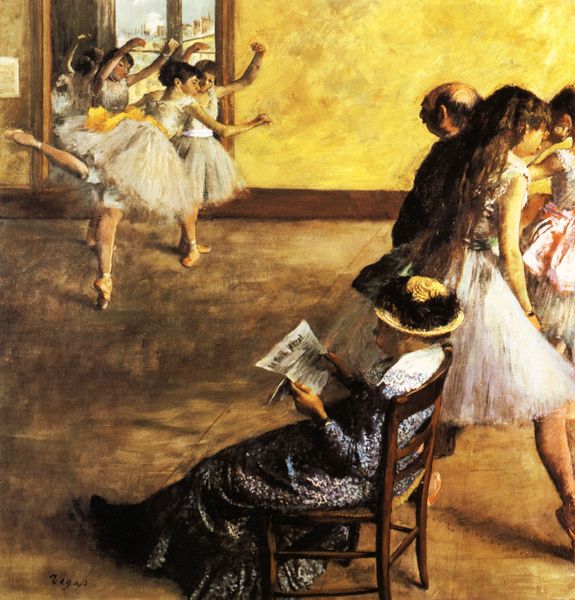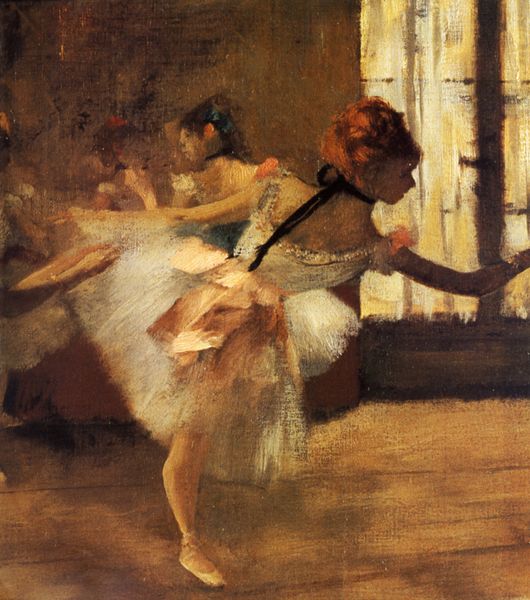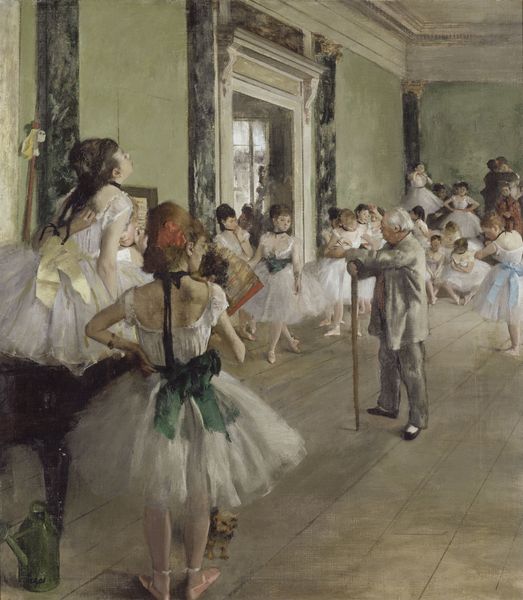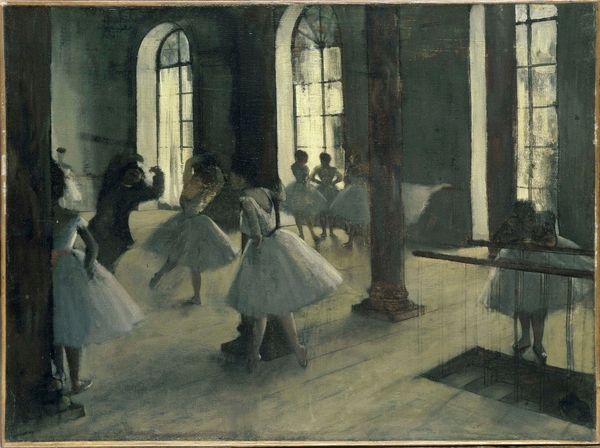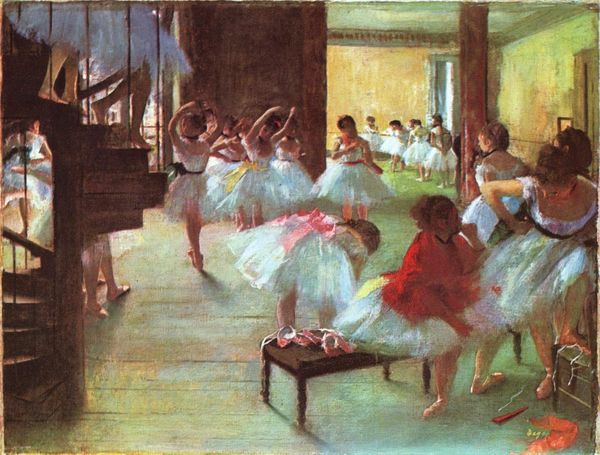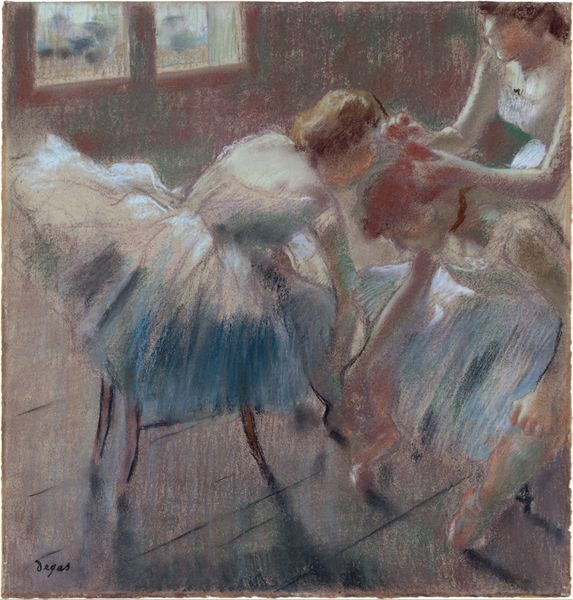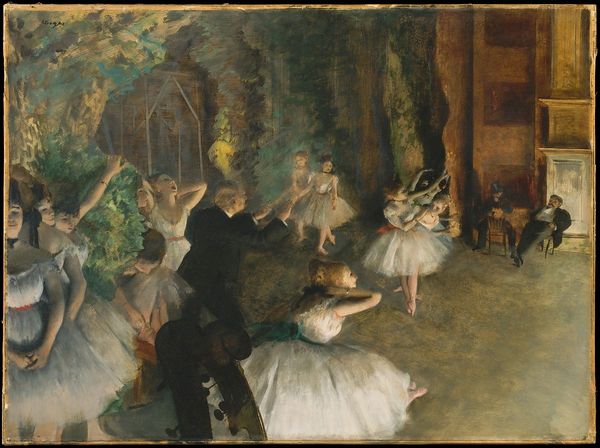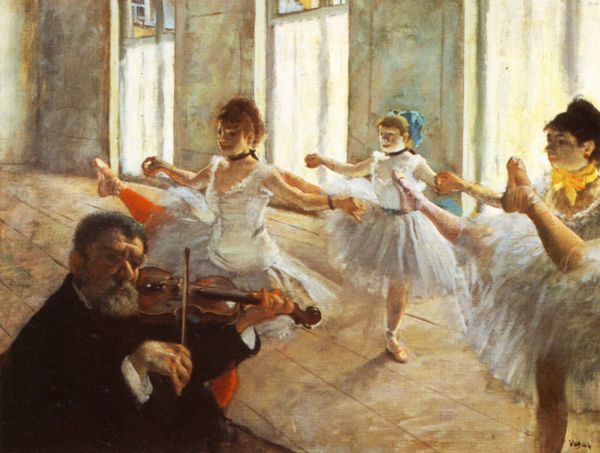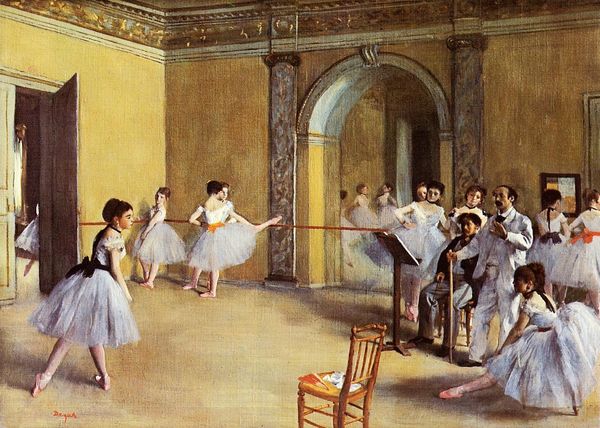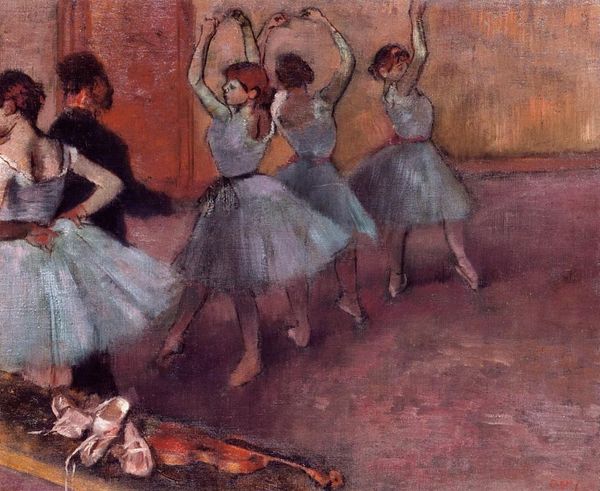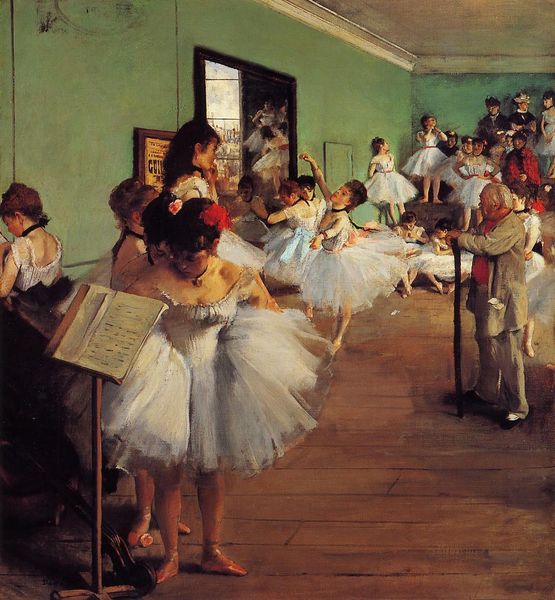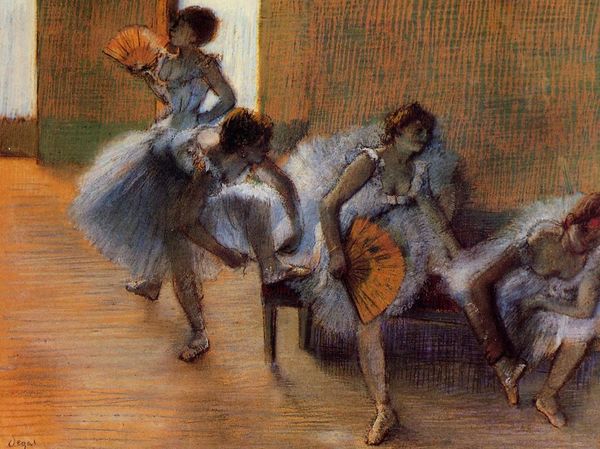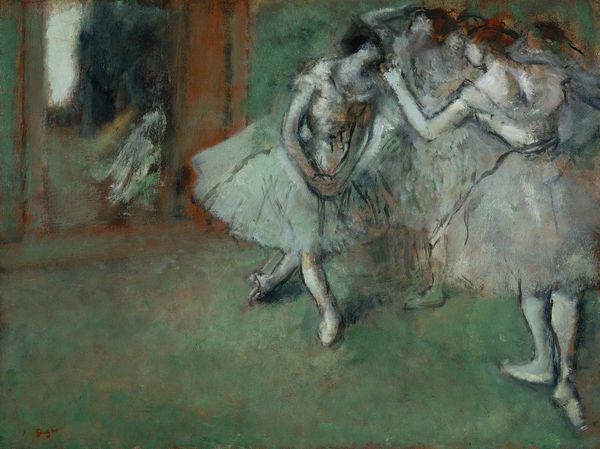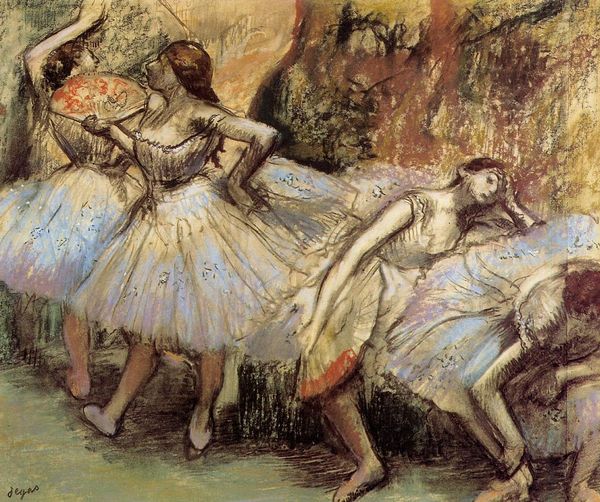
oil-paint
#
portrait
#
impressionism
#
oil-paint
#
charcoal drawing
#
figuration
#
oil painting
#
genre-painting
Dimensions: 58.4 x 83.8 cm
Copyright: Public domain
Curator: Edgar Degas’ "The Rehearsal," painted in 1877, offers us a glimpse into the world of ballet through his distinctive Impressionist lens. Editor: The ochre and cream color palette, coupled with the hazy, indistinct forms, creates a sense of transience, doesn't it? Almost like a fleeting memory. Curator: Absolutely. Degas wasn’t interested in the perfectly posed ballerina. He was drawn to the labor, the repetition, the unglamorous reality behind the spectacle. His focus was on representing modern life. We have to also remember that he repeatedly used the motif of the ballerinas to subtly discuss issues of gender, class and labor. Editor: Right. I see this as an important historical document—testimony to the raw work, the repetitive strain injuries of the girls in the ballet, where the wooden floors groan, not under the artistic achievement of dance but instead, a site of physical duress. Degas used oil paint in a way that mirrored this struggle, didn’t he? Curator: He certainly did. And look how he uses the architectural elements. The oppressive feel of the high ceiling and the way he draws the lines of the composition down to earth in a way that reminds us that ballet for many in his historical moment and indeed perhaps, even today, involves being on one’s feet on an empty stomach. Editor: And beyond subject and material, even his angle is crucial. We are high above the bodies, as if we, the consumer of this painting, get to have an almost supervisory gaze onto those bodies as though on display. The gaze becomes part of this whole structure. I now understand Degas’ repeated choices better by having visited The Burrell Collection, Glasgow, in which, among all the grandeur of decorative splendor, this painting has somehow quietly stood, almost hidden. Curator: Understanding Degas means we can analyze and recognize the systems that normalize the kinds of gaze relationships that we want to eradicate today. I will never view Degas the same again after reflecting on it with you, understanding now better than ever his engagement with both his time, and our own, in a whole new light.
Comments
No comments
Be the first to comment and join the conversation on the ultimate creative platform.
